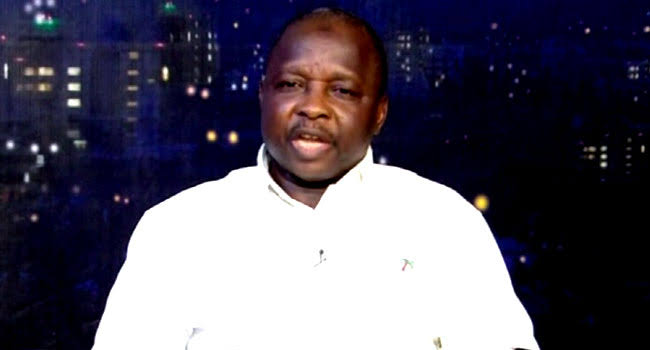As Nigeria continues to battle the threat of Boko Haram insurgents, a government program aimed at rehabilitating and reintegrating repentant terrorists has stirred heated debate. Many citizens and security experts are questioning whether the approach is effective and whether it puts national security at risk.
Speaking during an interview with Channels TV on Sunday night, Group Captain Sidik Garba Shehu, a retired military officer and counter-terrorism expert, explained that while amnesty programs are recognized under international law, they must be handled carefully.
“In war, there are rules under the Geneva Conventions,” Shehu said, “but the timing of Nigeria’s amnesty program is critical. It should only be introduced after hostilities have ended and Boko Haram is still active.”
A key issue in the debate is whether deradicalization changing the mindset of terrorists can truly succeed. Some experts believe that those who once turned to terrorism may never fully change. Shehu warned that deradicalization is complicated and must be done with caution.
“Deradicalization isn’t just about someone saying, ‘I have repented.’ It needs thorough investigation to make sure they haven’t committed serious crimes like murder or rape,” he said. “Without proper screening and profiling, a blanket amnesty could lead to impunity and an increased risk of reoffending.”
Another major challenge is how to successfully reintegrate former terrorists into society. Shehu pointed out that many individuals involved with Boko Haram, especially women and children, were abducted or forced to join.
“Children recruited under the age of 15 should be seen as victims, not perpetrators,” he added.
Although the goal of the program is to help heal the nation, it has deeply divided public opinion. Many Nigerians believe that offering amnesty to people responsible for brutal attacks sends a wrong and painful message to the victims.
The famous justice framework by Justice Oputa, “justice to the state, justice to the offended, and justice to the victim” brings up an important question: can real justice be achieved if those who committed serious crimes are allowed back into society simply by claiming they have changed?
Finally, Shehu stressed that the success of the deradicalization program depends on its long-term sustainability.
“For these programs to work, it’s not enough to offer psychological support. There must be real opportunities for jobs and strong community support,” he said. “Otherwise, frustration could drive them back into violence.”



